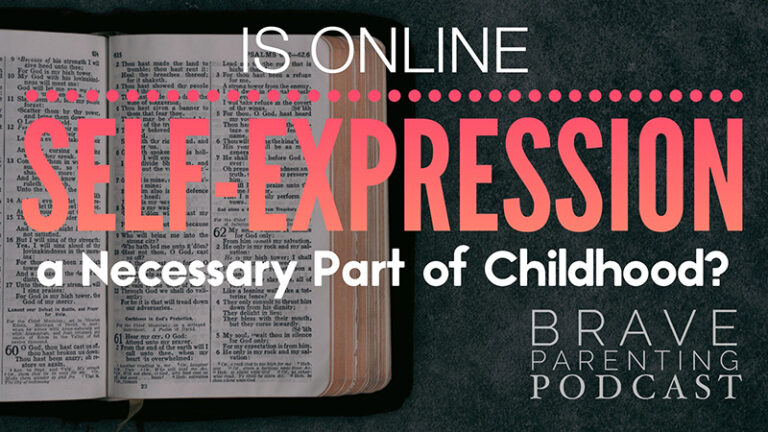Summer is such a sweet release for both parents and children alike. Absent are the alarm clocks blaring us into a new day while the sun remains hidden from our sky. Homework and projects do not dictate our evening schedules or dampen our spirits with looming dread.
So what will your children be doing with the freedom of summer?
Freedom to run, play, laugh, sleep, read, and engage with the world at our leisure are precious gifts summer offers.
It’s so important to remember as we embark on summer’s freedoms, however, this is also a prime time to refine our children’s values and character. Because while summer freedom is a beautiful aspect of childhood, structure and accountability are indispensable lessons children can be learning during this time.
As adults, we don’t live life in a care-free state where we do as we please, when we please, and how we please. Well, some do I suppose, but rarely would we define those people as successful role models. Instead, we live our adult freedom within defined boundaries. On our days off work we still have responsibilities to uphold, children to feed, laundry to do, bills to pay, etc. We constantly remain accountable regardless of the season.
The lesson of structure and accountability are ones we have the right and responsibility to teach our children. We choose hindrance and harm over blessing when we withhold the lessons of freedom within boundaries.
Let’s be real: our children have zero entitlement to a summer of no work and all play. During these precious summer months we have direct and abundant access to our children. We must use this time not only for fun, but for positive influence and character growth.
So, as summer begins, here are 3 KEY Ways to Balance Summer Freedom with Structure:
1. Set and keep bedtimes and wake-up times.
There is nothing better for a child’s mental and physical development than routine and quality sleep, according to the National Sleep Foundation. School-aged children require 9-11 hours of sleep per night yet the increasing prevalence of screens (especially when allowed in the bedrooms) are not allowing our children this needed amount.
If your child wakes up with the sun every day, they must have an earlier bedtime at night. Similarly, if your child is a night-owl they must be able to effectively sleep in ensuring they still sleep the appropriate amount of hours.
Parents, this takes forethought. We must know our family’s schedule and set known expectations of sleep for our kids. They will not make these healthy decisions on their own, it must be made for them. It must be demonstrated, explained, and enforced.
This type of structure will be forever utilized in their life. You can bless your child with a healthy ability to sleep as an adult by adhering to a strict structure now. As a licensed and practicing Pharmacist I can attest to an overwhelmingly amount of 20 YEAR OLDS who rely on prescription sleep aids in order to rest every night.
Of course, there are always exceptions. A trip to the drive-in movies will keep my children up past 1am. Specific moments, like a late night double feature, allows children to recognize the blessing of freedom when structure and time allows. Yes, the rule can be bent – but it won’t bend every night.
2. Establish a predetermined amount of reading or school review to be done on a regular basis.
If you have left the important task of educating your child to the teacher who has your child, among 28 others, for 9 months of the year you are neglecting one of your greatest assignments as a parent.Learning is a lifelong process and should never be paused for the sweltering hot days of summer. Neglecting the need for consistent and stimulating brain use will only serve to numb children to education. Furthermore, it is a disservice to the teachers to allow our kid’s knowledge and skills to slip over summer. The best way to bless a teacher is to send your child equipped and ready to learn the new material that grade level brings.
In my home, we accomplish this through a multitude of ways. Some days I’ll focus on my elementary school kids and have multiplication/division flash card competitions to earn extra ice cream toppings for an afternoon ice cream snack. Other days, my middle school boys and I will practice conversational Spanish together in preparation for their upcoming Spanish I class. Routinely, I’ll have all my kids (including middle school and high school kids) practice grammar and writing skills by composing letters to our sponsor child in Bolivia or to a family member in another state. Our family also has a summer reading goal that everyone must contribute to in order to win a big family prize. All of these are practical and achievable ways to incorporate learning every day.
Continuing the comparison to adults – because that is our end goal for our children – we continue to learn every day. When we need to know how to fix a toilet – we research and learn; how to better parent our children – we read and adjust our methods; how to modify your diet to become gluten free – we read every label, article and recipe until we feel qualified.
Our kids need to know learning is not a choice, it’s an expectation. “Yes, you have the freedom to play for 6 solid hours today with your friends, but first we must spend 30 minutes reviewing these division facts.”
3. Require age-appropriate chores.
The entitlement pandemic is creating more bondage for our children than we can estimate. Our culture, and often our parenting choices, teaches immediate satisfaction and doing only what makes you happy. Every child, however, can immediately benefit and gain long-term character strength when taught how to “do work.” Chores such as taking out the trash, dusting furniture, cleaning off the dinner table, and washing dishes helps establish a sense of ownership, responsibility, respect, and honor in our children.
There is no excuse for a parent to act as a martyr, “killing themselves to keep everyone happy.” No child needs to be “waited on” and “served” while doing nothing to contribute to the family. There is zero positive character development happening when parents display themselves as subservient to their kids.
I have a motto in my home, “I have expectations for you (i.e. helping with chores), just as you have expectations for me (i.e. driving them around town to be with friends) – we must work together to make our expectations known in order to meet them.” This communication works great. When children – especially teenagers – understand they must do their chores in order for parents to drive them to the movie theater, work gets done. It’s amazing!
The values which routine and daily chores will teach kids will be far greater than the annoyance felt from their complaining. Parents must be brave enough to withstand the whining and complaining for their greater good. These qualities and values will bless their future career, spouse, children, and society. We must raise kids who know how to work and meet expectations.
Just as we work and play as adults, kids must learn how to establish and maintain this balance. It is not child abuse to put your kids to bed before sunset or to require summer learning. Nor is it child labor to have them doing chores. This is brave parenting.
Doing the right thing even when it’s hard.












